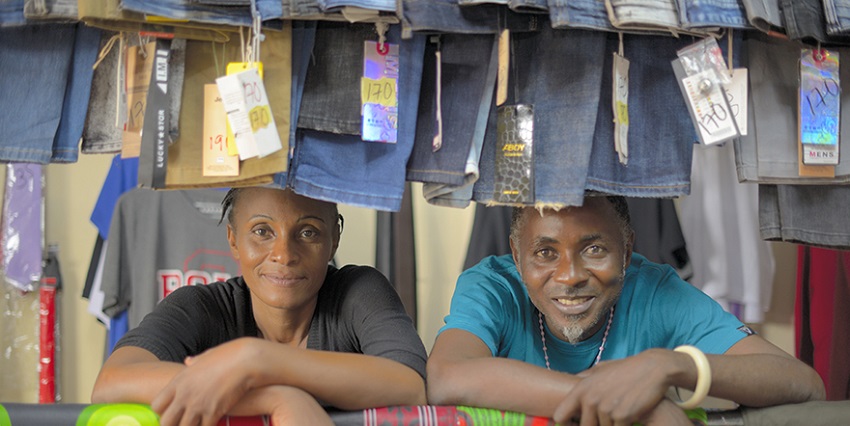[Interview] “Technical assistance helps structure our agricultural microcredits”
Interview with Susan Chibanga, Managing Director, AMZ Zambia

© Didier Gentilhomme
In Zambia, the microfinance institution AMZ provides microcredit, insurance, and money transfer services to over 50,000 clients, primarily women (60%) and in rural areas (80%). Thanks to technical assistance provided under the African Facility program, AMZ was able to implement an agricultural loan assessment system for smallholder farmers, an innovation in Zambia and the wider region.
What are the activities and objectives of AMZ Zambia?
Susan Chibanga: Since the institution's creation eight years ago, we have been providing opportunities and contributing to the economic well-being of the poorest people. We provide them with access to appropriate financial services: village group loans, agricultural loans, microinsurance, and even mobile payments. Agricultural loans and rural financing are costly activities that require close monitoring.
To make them viable, we rely on the expertise of our partners such as the Grameen Crédit Agricole Foundation, which is both one of our financiers and a technical assistance coordinator for several of our projects (*).
How does technical assistance improve your microloans?
AMZ has just taken a step forward in structuring its microcredit business. Thanks to technical assistance from the Foundation and other partners, we have implemented a tool to help manage our products, the Agricultural Loan Evaluation System, a true innovation in the region. This resource was initially developed by the Frankfurt School of Business. It allows us to determine credit limits by simulating repayment models based on the type of crops grown by small or medium-sized farmers. We conducted a pilot project on corn, soybeans, tomatoes, watermelon, and peanuts during one growing season. We now want to roll it out more widely.
With what priorities?
We are considering developing a mobile application for the tool. It would be useful to combine it with our customers' credit ratings and more secure authentication systems, such as pen signatures and even facial recognition. Experience shows that the tool reduces risk exposure for both our institution and our beneficiary clients. Technical assistance will help us continue to make our lending more efficient.
What are AMZ's growth prospects?
Already established in the central region of Zambia, we aim to expand our operations throughout the country. We also hope to become a deposit-taking institution within two years, in addition to our lending activities. Our positioning in the regions will remain crucial, with a long-term portfolio of 10 to 15,000 smallholders.
____________________________________________________



Leave a Reply
Want to join the discussion?Feel free to contribute!